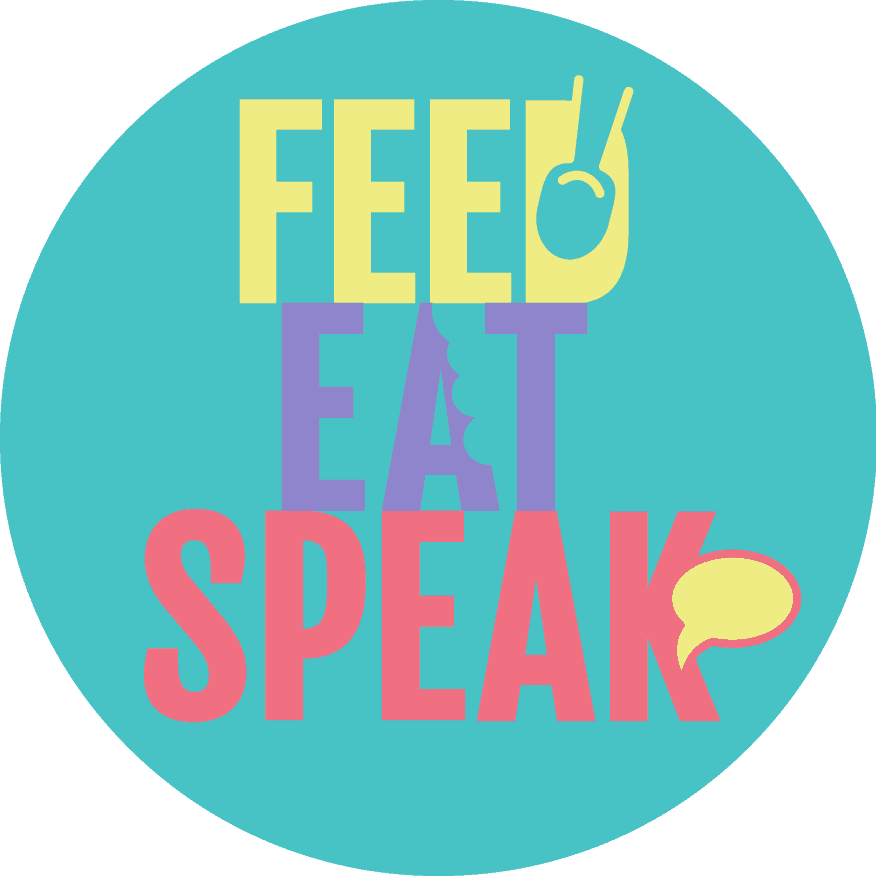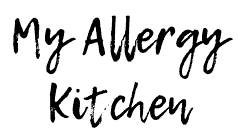Today's guest post by Stacey Zimmels, a feeding and swallowing specialist Speech and Language Therapist, focuses on the feeding difficulties you might encounter if your baby has cow's milk protein allergy, and how to overcome them. She sees many babies and children with feeding and swallowing difficulties in her clinical practice.

Pre-Weaning Feeding Difficulties
Cow’s milk protein allergy (CMPA) can present with a number of different symptoms. One lesser known symptom is feeding difficulties, which typically occur secondary to the gastrointestinal symptoms that babies can experience with CMPA. Gut symptoms of CMPA may include reflux, vomiting, nausea, constipation, trapped or excess wind. These symptoms may be present in infants across the day or may occur during or immediately after feeding. They can reduce an infants’ drive to feed (Do you want to eat when you feel sick or have heartburn?). Babies may learn that when they drink their milk they feel sick, bloated, or in pain, and therefore form a negative association around feeding.
As a result, many babies with CMPA began to reduce their milk intake. In some infants this results in poor weight gain or even weight loss. You may notice that your breastfed baby will not feed for comfort, that breast feeds are short. During feeds, your baby may become irritable, come off the breast and won’t settle. The number of feeds per day may reduce and your milk supply may be affected.
Feeding Aversion
In more extreme cases, breast and bottle-fed babies may also refuse to feed. They can even become distressed when offered the breast or bottle. This is known as breast or bottle aversion. This is more common in bottle fed babies. You may find that you can ‘encourage’ your baby to feed, but that this needs to happen in specific circumstances, often while your baby is in a drowsy/sleepy state and away from distractions in a darkened room.
Bottle feeds can take a long time with lots of starting and stopping. This in itself can lead to a reduced drive to feed. Your baby will stop feeling the usual sensations of hunger and fullness, as they are effectively being ‘drip fed’ over hours at a time, with the next feed quickly around the corner. In a small percentage of cases, oral intake can be so low that the baby may need to be fed via a tube through their nose into the stomach (nasogastric tube). Tube feeding can help your baby to grow and take some pressure off oral feeding, before starting feeding therapy to get your little one drinking again.

Emotional Impact
Not surprisingly this is totally exhausting and stressful for parents, regardless of whether there are issues around weight loss. Unfortunately, if your baby is growing, many health professionals won't “hear you” when you say that you are feeding your baby around the clock or you can’t leave the house as you need to be able to feed in the dark when your baby sleeps. It can be incredibly frustrating and have a significant impact on your early parenting experiences, and can be a very emotional time for you and your family.
Babies can pick up the stress of their parents, which can impact on the feeding relationship. Parents who are worried about feeding or growth can get in to habits of feeding to a clock or routine. They may aim for certain volumes or number of feeds in 24 hours. For some babies this may work, but often it creates additional problems by over-riding your baby’s feeding cues or making gastrointestinal symptoms worse.
Dealing with Feeding Difficulties
So, what can be done? Well the first and most important thing is to get a doctor to diagnose, confirm and treat the CMPA. For some the removal of the cow’s milk protein is enough, others may also need treatment for reflux or constipation. You must treat the symptoms that are affecting your little one's drive to feed first, before you can treat the feeding difficulty. Some babies' feeding will improve once treatment commences without any further intervention. For others, treatment in the form of hydrolysed formula can actually make feeding worse before it gets better, due to the different taste of the milk. Strategies such as gradually introducing the milk by mixing it with standard formula initially can help. Some parents add flavouring to the milks, however this should only be done under the guidance of your Paediatrician or Dietitian.
Unfortunately, not all babies improve with medical treatment alone. Others will need feeding therapy from a speech and language therapist who specialises in feeding and swallowing difficulties. Typical treatment involves strategies which normalise the feeding process. For example, by watching your baby's cues, letting them take control of the feeding process and helping them regain a drive to feed.
Starting Weaning
I see a lot of babies who are weaned before 6 months under the advice of a Paediatrician. For some babies this can really help, for others this can create additional difficulties, as they are not developmentally ready. It is a well-established fact that babies feed best when they are physically capable to feed, have some hunger, and are fed responsively.
The challenge of early weaning is that they may not be physically ready for solids and often aren’t fed responsively. For example, if they are pushing the food out of their mouth or turning their head away, feeding may still be continued (albeit with nice distractions such as singing). If your baby isn’t ready, they may become more and more resistant to being fed. If you don’t stop and restart when they are more ready, you could find yourself back to square one with the feeding challenges. But now it is with the solids – which was meant to be your “get out of jail free card”!
Responsive Weaning
Many parents who have had babies with either feeding or growth difficulties in infancy find weaning challenging. You may have a very real fear or worry that they are not eating enough. You may want to help your baby by spoon feeding to make sure they take in enough food. This would be fine if all our babies had the same needs - but they don’t. Babies don’t always eat set amount of foods at each mealtime and appetite varies across the day. This makes it hard to know what ‘enough’ or ‘too much’ is when feeding each individual child. Babies with a history of feeding difficulties typically prefer to feed themselves. All these things are at odds with a target or volume focused approach. It may lead to a mealtime struggle with spoon refusal manifesting itself.
Weaning can also be complicated by the need to introduce allergens one at time (if that is the advice that you have been given). This can slow things down and take up a lot of additional time and planning. It can also be stressful if your child doesn’t want to eat the target food! If your infant had reflux or vomiting as a symptom of CMPA they may have developed a hypersensitive gag reflex. This means they may be more prone to gagging. You may notice they gag a lot in the early stages of weaning, or that the gagging continues when you may have expected it to diminish. For more information see my blog post on gagging, coughing and choking.
Tips for Overcoming Feeding Difficulties
My top tips for weaning a child with CMPA who has had early feeding difficulties would be:
- Ensure any underlying gut symptoms are managed and you follow your Doctor’s advice re: introduction of allergens.
- Wean when they are developmentally ready unless you are certain that weaning early is indicated. This is usually with faltering growth and significant milk refusal.
- Be open minded with regards the approach you choose – spoon or finger foods. Start with a combination of both. Then watch your child to see if they prefer one or the other.
- If you choose spoon feeding, be responsive to your baby and let them lead. Take a look at my blog on responsive spoon feeding.
- Stay calm if they gag and try not to let it impact on your progression to more solid foods.
- Follow your baby’s lead regarding volumes taken and remember their appetite will fluctuate day to day and meal to meal. Try to trust that if they will take what they need to eat. Using Ellyn Satter’s division of responsibility of feeding model can really help with this.
Although it can feel frustrating to manage your baby's feeding difficulties, with patience and care you can overcome these issues. If you need further support speak to your GP and ask for a referral to a feeding and swallowing specialist speech and languge therapy team.

Stacey Zimmels is a Feeding and Swallowing Specialist Speech & Language Therapist. She has almost 20 years of experience supporting infants and children with feeding difficulties. From bottle refusing to fussy eating, breastfeeding difficulties to reflux and allergy-related feeding issues, Stacey has a wealth of knowledge and experience. She currently divides her time between working in the NHS, running her private practice and being mum to two small children.
To contact Stacey visit her website here, or follow her on Instagram: @feedeatspeak



Leave a Reply